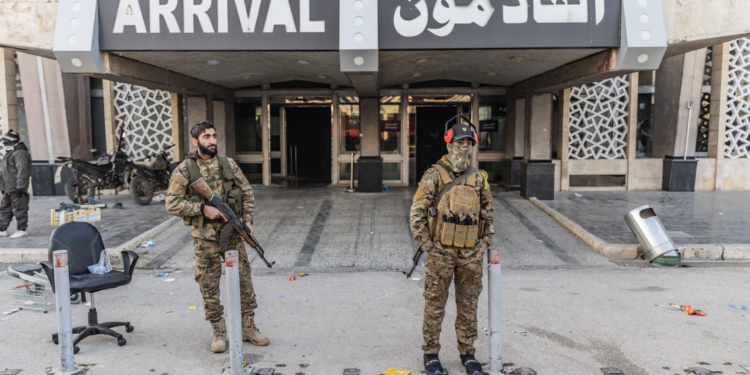A senior Houthi missile forces specialist was killed alongside other Iraqi terrorists from Kataib Hezbollah at the Iraqi government Popular Mobilization Forces base near Baghdad, underlining the government’s cooperation with both domestic and international terrorist groups.
On July 30, 2024, U.S. forces struck a drone cell in Jurf as-Sakr, the Kataib Hezbollah (KH) enclave just south of Baghdad. The U.S. Department of Defense confirmed that it had struck the group as they were “attempting to launch” a drone. U.S.-designated terrorist organization KH announced that four of its members were killed in the strike. They were named as “field commander Ahmad Najm Abdal-Zahra (Abu Hassan), along with Hussein Karim Kazem al-Darraji, Haider Hassan Hussein al-Saadi, and Ali Sadiq Omran al-Musawi”.
The KH deaths came from the Popular Mobilization Forces (PMF) brigade 47, providing further evidence that a U.S.-designated terrorist movement, KH, does receive payment and legal cover from the Iraqi government via the PMF framework. The dead terrorists were also linked in Iraqi Ministry of Interior statements to the PMF Jazira Operations Command, which Militia Spotlight has previously identified as a KH-controlled special operational area encompassing parts of central and western Iraq within which KH has primacy and can launch drones and rockets at will.
As interesting, the U.S. strike on July 30 also successfully removed a Houthi mid-level commander from the battlefield. Part of the U.S. specially-designated global terrorist entity Ansar Allah (the Houthi movement), the slain terrorist was called Hussein Abdullah Mastour al-Shabal (Abu Jihad) and was reported by Houthi obituaries to be from the Houthi family heartland of the Marran Mountains, in Saada governorate in Yemen. Iraqi factions tried to justify Hussein Abdullah Mastour’s presence on a PMF base as being a participant in “technical intelligence on reconnaissance drones” that were purportedly to be used to secure Shia pilgrimages to Karbala.
In his most recent obituary picture, Hussein Abdullah Mastour has the red beret of a Houthi republican guard officer and the rank insignia of a brigadier general, meaning he is effectively a full colonel (due to near universal rank inflation by one degree in the Houthi military). This marks him out as a senior officer in the Houthi Aerospace Forces (drone and missile), part of the “qualitative forces” mentored directly by the Islamic Revolutionary Guard Corps – Qods Force (IRGC-QF). His death in Iraq points to a tangible, if still token, Houthi role on the ground inside Iraq, possibly the reason for so many joint claims by the Islamic Resistance in Iraq and the Houthi Armed Forces in recent months. This also means that the government of Iraq, through its PMF units and bases, is providing material support to a U.S.-designated terrorist group from Yemen that is presently attacking U.S. military and global civilian shipping.



































